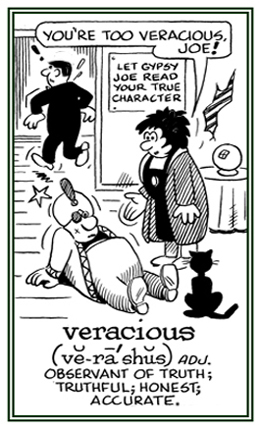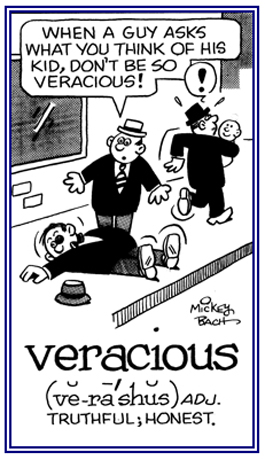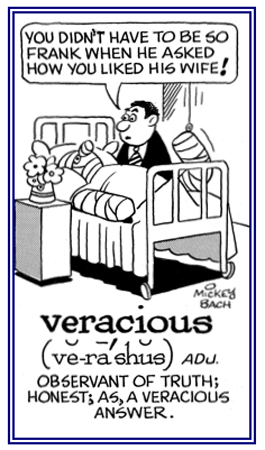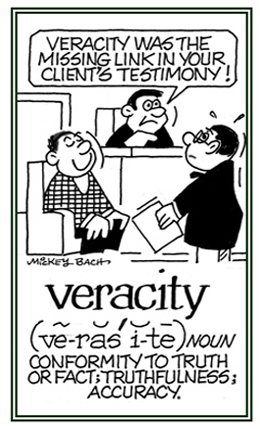veri-, ver-
(Latin: true, truth, real, truthfulness)
Motto of the Coastal Carolina Community College, Jacksonville, North Carolina, USA.
This is an anagram that is said to come from an unknown medieval writer. Readers of the New Testament will recall that, when Christ was taken before Pilate as a criminal, He said, "To this end was I born, and for this cause came I into the world, that I should bear witness unto the truth. Every one that is of the truth heareth my voice."
When Pilate asked, "What is truth?" (Quid est veritas?) there is no indication that Christ replied; however, the medieval anagrammatist pointed out that, strangely enough, the question contained its own answer. A rearrangement of Quid est veritas gives us Est vir qui adest (It is the Man who is here); in other words, Christ Himself is the Truth (John 18:37-38).
Motto of Lake City Community College, Lake City, Florida, USA.
Motto of the Union Theological Seminary, New York, New York, USA.
2. A reference to something which is accurate and precise, as in an account or story: The veracious statement June told the judge was proven to be totally accurate.
3. Etymology: from Latin verus, "true" + -ous, "having, full of."



Go to this Word A Day Revisited Index
so you can see more of Mickey Bach's cartoons.
2. Correctness or accuracy of the facts: When fictional stories or novels are written, veracity is certainly not one of the most important elements or aspects presented!
3. Etymology: from Latin veracis, "truthful" from verus "true."

Go to this Word A Day Revisited Index
so you can see more of Mickey Bach's cartoons.
2. A decision or opinion pronounced or expressed about some matter or subject; a finding, a conclusion, or a judgement: The academic committee at the university reached a unanimous verdict about the admission of the new candidate for the doctoral program.
3. Etymology: from verdit,, the Anglo-Norman variant of Old French veirdit., "true statement, sworn testimony" which evolved from verdit, the Anglo-Norman variant of Old French veirdit., " a true saying" or "report".
This was a compound formed from veir "true" (a descendant of Latin verum, related to English very) and dit, "a saying, a speech"; which came from Latin dictionem, "a saying, an expression, a word".
2. Characterized by something that corresponds with facts or to reality, and therefore is genuine or real: Jimmy had a veridical hallucination that his parents were injured in an auto accident which turned out to be true.
3. Etymology: from Latin veridicus; from verus, "true" + dicere, "to say".
2. The evidence that proves something true or correct.
3. In law, an affidavit swearing to the accuracy of a pleading.


